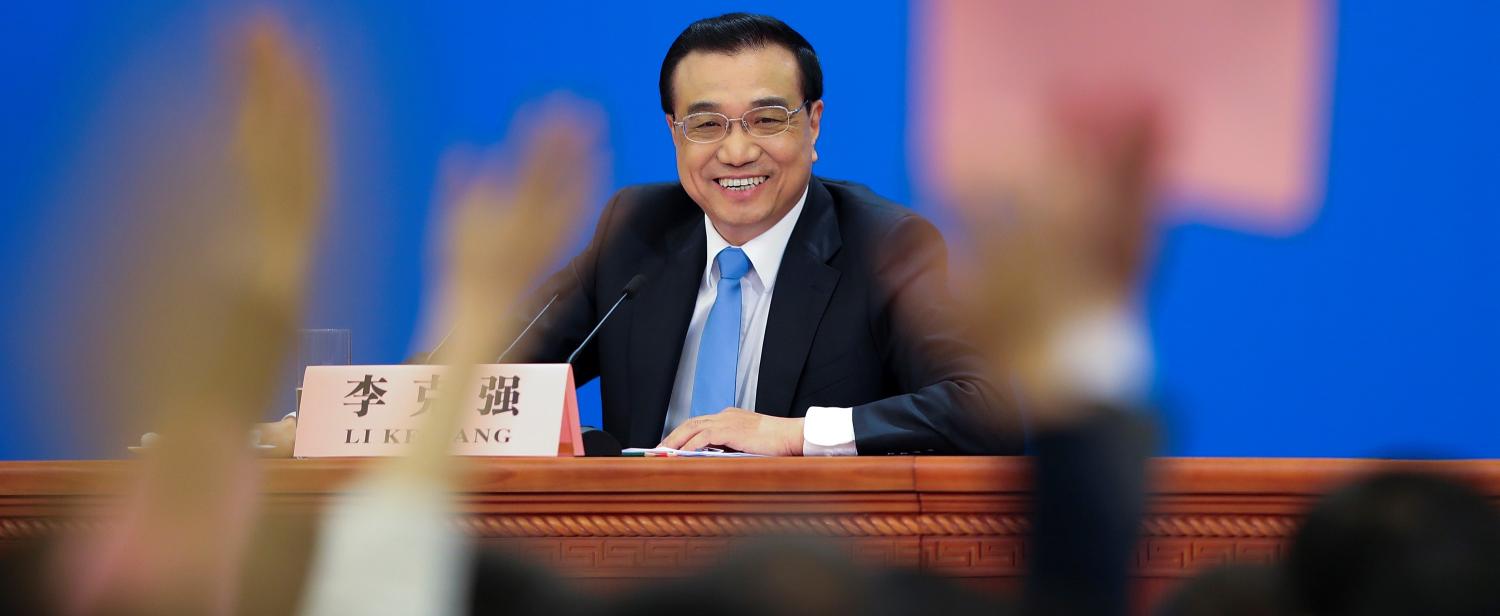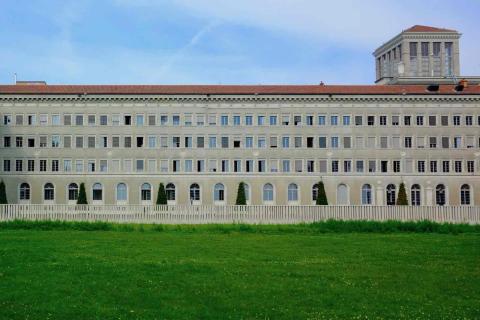Chinese Premier Li Keqiang's week-long visit to Australia (and New Zealand) comes amid a flurry of diplomatic activity spurred by US President Donald Trump's disruption of the international relations equilibrium.
Li's main objective is promoting trade and investment, particularly through President Xi Jinping's Belt and Road Initiative (which China hopes to align with Australia's northern development plan). But Li will also aim to contrast Chinese stability with Trump, and argue for China's favoured balance of global relations: one in which China does not face a unified front of US allies. Foreign Minister Julie Bishop's recent statement about democracy will now also inevitably be squeezed into this agenda.
China's Foreign Ministry seems to have finally found a policy formulation for US allies that could resonate: that China and Australia are (and should be) in a 'common circle of friends'. This policy offers no attempt to divide Australia and the US, but presents an option where Australia also does not need to choose between the US and China. Avoiding that choice has been a top Australian priority for nearly two decades. China knows that if it forces Australia to choose, it won't like the answer, so Chinese and Australian interests align: both don't want Australia to make this choice.
There is a simple and unsurmountable reason Australia could not choose China over the US: despite strong and friendly relations, Australia and China do not fundamentally trust each other. While recent commentary has suggested that Trump might push Australia closer to China, there simply is no room for closer relations – Australia and China are already about as close as we can be. The mistrust that persistently frustrates otherwise strong relations arises from very different political institutions. It is exacerbated at top political levels by China's interference in Australian domestic politics, cyber espionage, a weak commitment to the sovereignty of neighbours, and the government's habit of punishing firms from countries that upset China's political interests; and Australia's apparently arbitrary rejections of Chinese investments, involving itself in China's disputes with other countries, and lecturing China over human rights and democracy.
Despite this deep mistrust, there is a degree of goodwill that goes well beyond official levels. Because of that, and because it resonates with Australia's self-image of a nation built on 'mateship', the concept of 'mutual friends' should be well-received. It helps that the Australian public believes their economic fortune depends on good relations with China and that most Australians see their security as requiring amicable US-China relations. In short, 'mutual friends' plays both to Australian values and to Australian interests – a rare terminology win for the Chinese Foreign Ministry. While promoting the idea of 'mutual friends', Li will hope to contrast Chinese stability against an unreliable Trump. While it's premature to identify a Trump doctrine, 'unpredictability' is a strong early contender. In the past month, Trump put the US-Australia relation in a spin with that phone call, offended the UK by baselessly accusing GCHQ of spying on him via White House Press Secretary Sean Spicer, and offended Germany by bizarrely refusing to shake Chancellor Angela Merkel's hand and falsely accusing Germany of owing money to NATO. Trump is systematically alienating US allies and neighbours while aligning himself with dictators and human rights abusers. Li will not need to articulate the contrast himself – the Australian media (and public) could scarcely fail to observe it for themselves.
Most of the explicit statements made during Li's trip are likely to focus on trade and investment, rather than strategic relations. On trade, China is presenting itself as the champion of an open global economy (despite a number of obvious hypocrisies) in contrast to Trump. Progress on the ASEAN-led RCEP, which includes both Australia and China, would contrast starkly with the failure of the TPP. On investment, China remains upset by Australia's foreign investment regime, perceiving it as ad hoc and hostile to them specifically, yet still favours Australian involvement in Belt and Road. In February, Foreign Minister Wang Yi savvily declared his interest in aligning the initiative with Australia's northern development plan.
Finally, Li might feel compelled to rebut Bishop's comments about democracy and a 'rules-based order'. Wang has previously argued that one country's values aren't necessarily universal, and that 'international rules should be jointly stipulated by all countries'. While Australia needs to recognise that it cannot hector China into adopting its political culture, it is within its rights to express discontent at China's aggressively anti-democratic and anti-Western domestic campaign, which depicts 'Western ideas' as messy, chaotic, and hopeless, in contrast with the self-described stability of China's system.
China's position on international rules (that they were made without China's input, and that they now should be afforded the chance to make amendments) has a degree of merit. Yet China itself avoids working with the international community to constructively amend internationally agreed upon rules in a vast number of high profile areas. And when rulings on laws it has agreed to go against its interests, it has simply refused to acknowledge the legitimacy of the ruling. For example, when the Permanent Court of Arbitration was asked to consider how the UN Convention on the Law of the Sea related to China's claims in the South China Sea, China simply refused to participate, preferring to instead engage the Philippines through economic pressure and diplomacy. Not every case is dismissed this way: China often does accept WTO rulings, even when those rulings are against its interests.
Li has an opportunity to articulate a case on this issue that does in fact have some merit, but if he hopes to win friends he will need a different primary strategy from the one we've seen since 2012.
Li is highly likely to have a successful and lauded trip that presents China as a reliable trading partner with exciting investment opportunities. His message about China and Australia being in a 'common circle of friends' should be warmly received. If he can also diminish concerns about China's approach to its neighbours' and friends' sovereignty, the trip will be even more welcome, but that aspect remains to be seen.

